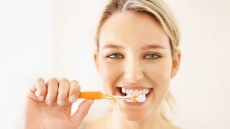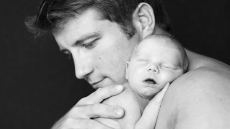People have learned to gather information from touch and researchers have now found how complex tactile sensations from the skin are coded at the cellular level in the brain.
The traditional understanding in neuroscience is that tactile sensations from the skin are only assembled to form a complete experience in the cerebral cortex, the most advanced part of the brain.
Other levels in the brain play a greater role than previously thought, and that a larger proportion of the brain's different structures are involved in the perception of touch, the new findings showed.
“The assembly of sensations actually starts in the brainstem," said neuroscience researcher Henrik Jörntell from Lund University in Sweden.
The brainstem is a primordial part of the brain that regulates basic functions necessary for survival, such as breathing, blood pressure, heart rate and body temperature.
"It was believed that a tactile sensation, such as touching a simple object, only activated a very small part of the cerebral cortex. However, our findings show that a much larger part is probably activated,” Jörntell added.
For the study, the researchers investigated how individual nerve cells receive information from the skin.
They used a 'haptic interface', which created controlled sensations of rolling and slipping movements and of contact initiating and ceasing.
Movements proved decisive for the perception of touch - something that was not previously technically possible to study.
The new findings could have a bearing on psychiatric illness and brain diseases such as stroke and Parkinson's disease.
Detailed knowledge of how the brain and its various parts process information and create a picture of a tactile experience is important to understanding these conditions.
"If we know how a healthy brain operates, we can compare it with the situation in different diseases. Then perhaps we can help patients' brains to function more normally,” Jörntell explained.
The study appeared in the journal journal Neuron.






